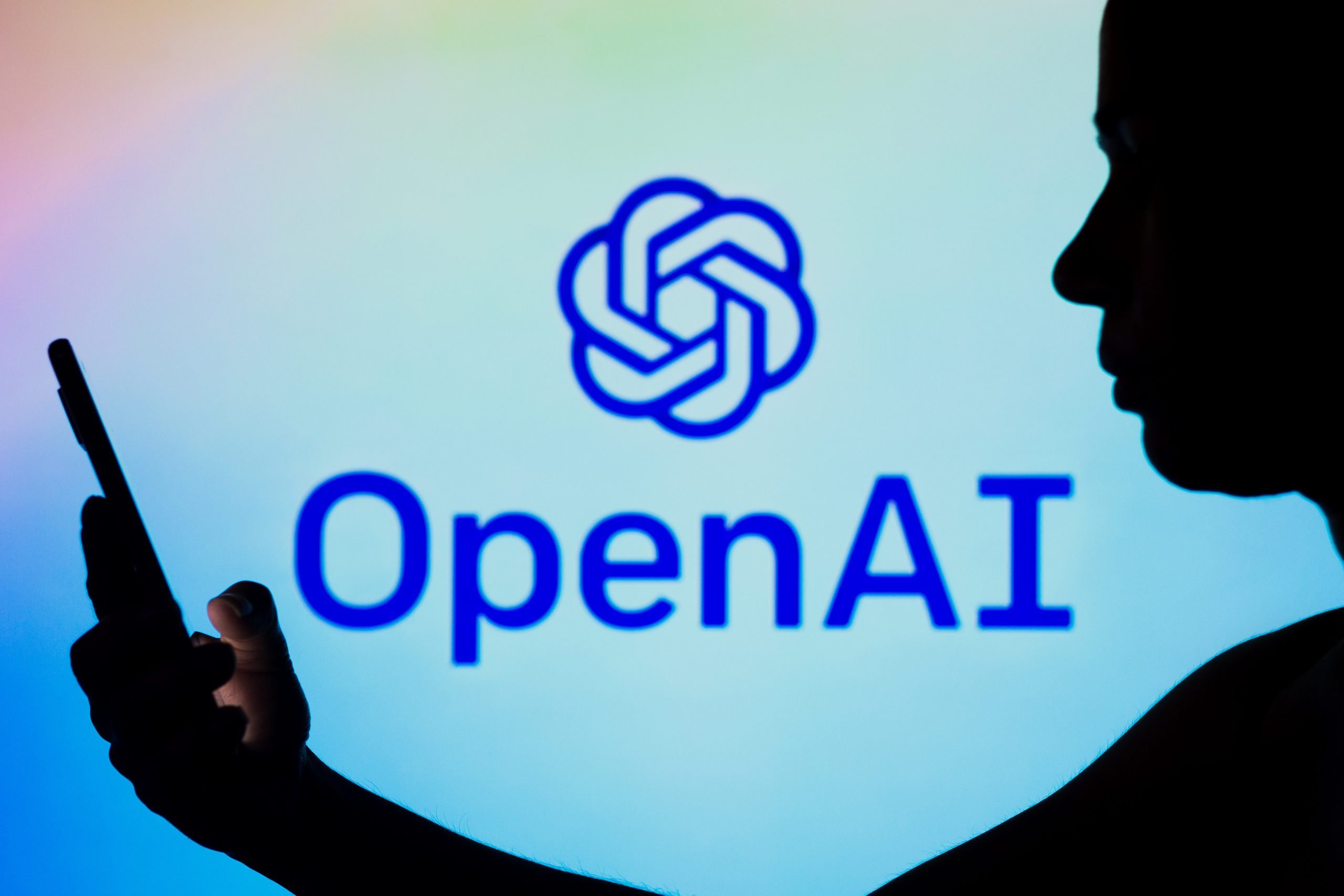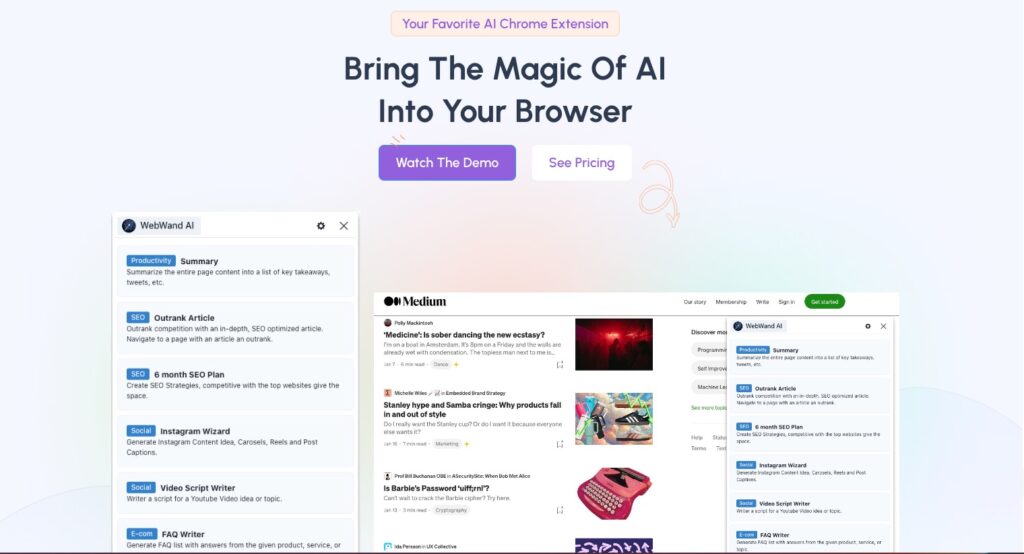Imagine a world where artificial intelligence (AI) not only augments human capabilities, but also ensures a brighter future for all of humanity. This is the vision that drives open AI, a research company founded by some of the most influential names in technology.
As we delve into the story of OpenAI and its groundbreaking AI tools, we’ll explore how this San Francisco-based organization has shaped the AI landscape and continues to push the boundaries of what’s possible.
In this journey, we’ll uncover the beginnings of open AI, its mission, and the visionary founders behind it. We’ll also examine its most impressive AI tools, such as GPT-3 and GPT-4, DALL-E, and ChatGPT, and the potential impact they could have on various industries. Furthermore, we’ll discuss the ethical challenges surrounding AI, the company’s transition to a capped-profit model, and its partnership with Microsoft. Finally, we’ll look into the future of open AI and the role of artificial general intelligence (AGI) in shaping our world.
Open AI Short Summary
- OpenAI is a research company founded in 2015 with the mission of developing benevolent AI to benefit humanity.
- OpenAI has made significant advances in AI technology, including powerful tools such as GPT-3, GPT-4, DALL-E and ChatGPT for automation and improved decision making.
- The potential of Artificial General Intelligence (AGI) holds great promise for revolutionizing industries through natural language processing, computer vision and reinforcement learning.
OpenAI: A Brief History
Founded in San Francisco in 2015, OpenAI is a research company that aims to promote and develop benevolent AI. Its mission is to ensure that artificial general intelligence (AGI) benefits all of humanity, aligning with human values. AGI refers to AI systems that possess a higher level of intelligence than humans, capable of outperforming us in most economically valuable work.
OpenAI announced its commitment to guide the future of AI and constructing a safe and beneficial environment for highly autonomous systems, led by experts such as its chief scientist, chief technology officer, and chief operating officer.
The Founders and Vision
OpenAI was founded by a group of visionaries including Ilya Sutskever, Greg Brockman, Trevor Blackwell, Vicki Cheung, Andrej Karpathy, Durk Kingma, Jessica Livingston, John Schulman, Pamela Vagata, and Wojciech Zaremba. Elon Musk and Sam Altman were initial board members of the organisation. The company’s mission was to develop secure and accessible AI tools to empower individuals.
Today, OpenAI’s advanced AI tools have the potential to revolutionize various industries, from healthcare to finance, automating processes, enhancing decision-making, and generating new products and services, including the most economically valuable work.
Elon Musk is no longer associated with OpenAI, but the company has continued to forge ahead under the leadership of CEO Sam Altman and Greg Brockman president. OpenAI has made significant strides in AI technology, such as the development of OpenAI Gym, a toolkit for reinforcement learning, and the creation of early generative models that laid the foundation for future advancements.

OpenAI Gym and Generative Models
In 2016, OpenAI launched its inaugural tool, the open-source OpenAI Gym, specifically designed for reinforcement learning. This toolkit aimed to provide a testing environment for training AI agents, marking a significant milestone in the company’s research journey.
The development of OpenAI Gym laid the groundwork for more advanced AI systems, paving the way for the company to create groundbreaking AI tools like GPT-3, DALL-E, and ChatGPT. These innovative technologies have the potential to revolutionize the way we interact with AI and the world around us.
Groundbreaking AI Tools
OpenAI’s most noteworthy AI tools include GPT-3, DALL-E, and ChatGPT. These powerful AI systems have the potential to revolutionize many industries, ranging from healthcare to finance. By automating processes, enhancing decision-making, and generating new products and services, OpenAI’s AI tools are poised to bring about significant changes to the world as we know it.
Language Model Revolution
The evolution of OpenAI’s language models has been nothing short of extraordinary. GPT-3, for example, was trained on 45TB of text data and translated into 175 billion parameters, demonstrating significantly enhanced capabilities compared to its predecessors. These language models can be utilized for tasks such as text summarization, question answering, machine translation, and text generation.
The advancements made by OpenAI in the realm of language models have greatly impacted the field of natural language processing and understanding. From GPT-1, trained on 8 million web pages and comprising 1.5 billion parameters, to GPT-4, which is 40% more likely to provide accurate replies and 82% less likely to produce output that breaks OpenAI’s content policy, the progress made by OpenAI is undeniable. As these language models continue to evolve, the potential applications and benefits they offer will only continue to grow.
DALL-E and the Future of Image Generation
DALL-E, another groundbreaking AI tool developed by OpenAI, combines machine learning and generative models to create photorealistic images from textual descriptions. This innovative technology has the potential to transform the way we generate and interact with visual content in various industries. Companies like Microsoft have already adopted DALL-E 2, integrating it into their services and charging per photo, with costs varying depending on the image resolution.
As DALL-E continues to evolve, we can expect even more impressive advancements in the field of image generation, opening up new possibilities for creative expression and the way we interact with visual content.
[deleted by user]
by inChatGPT
OpenAI LP and Microsoft Partnership
In 2019, OpenAI transitioned to a capped-profit model with the establishment of OpenAI LP, a hybrid structure combining elements of both a for-profit and nonprofit organization. This transition aimed to further advance the company’s research and development of AI tools while maintaining its commitment to ethical and responsible AI development.
Microsoft played a significant role in supporting OpenAI’s transition by providing a $1 billion investment in 2019 and a $10 billion investment in 2023. This partnership has not only helped fuel OpenAI’s research, but also led to the integration of ChatGPT into Microsoft’s Bing search engine and Microsoft Edge. With a focus on enhancing search capabilities, providing more comprehensive answers, and improving the chat experience, this collaboration is likely to drive further advancements in AI technology and make it more accessible to the public.
The partnership between OpenAI and Microsoft is a testament to the potential of AI in revolutionizing various industries and the importance of collaboration in driving innovation. By working together, these companies are paving the way for a future where AI technology can truly benefit all of humanity.
Responsible AI Development and Challenges

As AI continues to advance, concerns about responsible AI development have come to the forefront. Responsible AI development is the practice of designing, developing, and deploying AI with the aim of positively empowering employees and businesses, and impartially influencing customers and society. It involves a framework of principles such as fairness, reliability and safety, privacy and security, inclusiveness, transparency, and accountability.
When developing AI, it is essential to consider the potential for bias in AI algorithms, the potential for AI to be utilized for malicious purposes, and the potential for AI to be employed to manipulate or exploit individuals. Data collection practices should be conducted in a transparent, secure, and compliant manner with all applicable laws and regulations, respecting the privacy of individuals and organizations.
However, the potential risks associated with AI tools cannot be ignored. There is a possibility that AI tools could be utilized to automate decisions that could have detrimental effects on individuals or society, to manipulate or exploit people, and for malicious purposes. As AI technology progresses, it is crucial that organizations like OpenAI continue to prioritize ethical considerations and strive to mitigate these risks.
OpenAI’s Impact on Industries
OpenAI’s AI systems have the potential to benefit various industries, such as healthcare, transportation, agriculture, marketing, finance, and customer care. In healthcare, AI systems can enhance diagnosis accuracy, minimize medical mistakes, and automate administrative duties. In transportation, AI can improve traffic flow, decrease accidents, and optimize logistics.
In the agricultural sector, AI can enhance crop yields, decrease water consumption, and automate farming operations. In marketing, AI can enhance customer segmentation, optimize campaigns, and automate marketing tasks. In the finance sector, AI can enhance risk management, curb fraud, and automate financial tasks. Lastly, in customer care, AI can enhance customer service, decrease wait times, and automate customer support tasks.
As OpenAI continues to develop groundbreaking AI tools, the potential impact on various industries will only grow. By harnessing the power of AI, we can address some of the world’s most pressing challenges and unlock new opportunities for innovation and growth.
Getting Started with OpenAI’s ChatGPT

OpenAI’s ChatGPT is an AI-powered chatbot that utilizes GPT-3.5 language technology to imitate human conversation and provide comprehensive responses to both straightforward and intricate instructions. With an impressive user count of one million within a week from its launch, ChatGPT is gaining popularity for its ability to generate complex algorithms. Python code and compose college-level essays when presented with a prompt.
While ChatGPT has its limitations, such as a knowledge base that ends in 2021, a tendency to generate inaccurate responses, and a propensity to use repetitive phrases, it still offers a powerful tool for various purposes. From generating content to answering complex questions, ChatGPT is poised to play a significant role in shaping the future of AI applications and interactions.
The Future of OpenAI and AGI
The future of OpenAI and AGI is full of exciting possibilities. Artificial General Intelligence, a hypothetical form of AI that is capable of performing any intellectual task that a human can, has the potential to profoundly influence our world. By harnessing human intelligence, AGI could assist us in more effectively comprehending and confronting global issues such as climate change and poverty, as well as enhancing healthcare, education, and generating new jobs and industries.
OpenAI is investigating a range of potential innovations in AI technology, including natural language processing, computer vision, and reinforcement learning. These advancements could result in more effective and precise AI systems that can more effectively comprehend and interact with the environment. As OpenAI continues to push the boundaries of AI research, the potential for AGI to shape our world becomes an increasingly fascinating prospect.
Funding and Competition
OpenAI has raised in excess of $11.3 billion in funding, with Microsoft’s $1 billion investment in 2019 and a $10 billion investment in 2023 playing a significant role in supporting the company’s research and development efforts. However, it is anticipated that Microsoft’s speculated $10 billion investment will likely propel the company further away from its open-source roots.
In addition to funding, competition is also driving innovation in the AI field. Elon Musk, one of OpenAI’s original founders, is reportedly working on developing a ChatGPT competitor with fewer limitations. As competition heats up, the race to develop more advanced AI tools will undoubtedly result in even more impressive breakthroughs and advancements.
Summary
OpenAI’s journey from its founding to the development of groundbreaking AI tools like GPT-3, DALL-E, and ChatGPT is a testament to the power of innovation and collaboration. With a mission to ensure that artificial general intelligence benefits all of humanity, OpenAI is at the forefront of AI research, pushing the boundaries of what’s possible. As we look to the future of OpenAI and AGI, there is no doubt that the potential for AI to revolutionize industries and shape our world is limitless. Together, we can unlock the power of Open AI and harness its potential to change the world for the better.
Frequently Asked Questions
Is OpenAI owned by Elon Musk?
Elon Musk is not the owner of OpenAI, but still serves as a board member and advisor. Though he has withdrawn his financial support for the company, he still has an influence on OpenAI’s decisions.
What does OpenAI do?
OpenAI is a research laboratory that seeks to develop safe and beneficial AI which can outperform humans at most economically valuable work. Founded by Elon Musk, Sam Altman and others in 2015, the company is headquartered in San Francisco.
What is OpenAI’s mission?
OpenAI’s mission is to build an AGI that aligns with human values, for the benefit of all humanity.
References:



